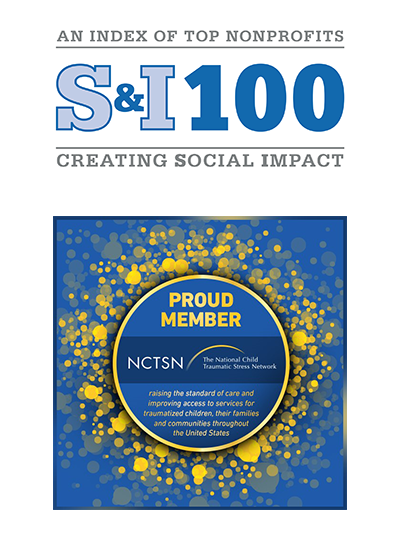Tanya was a four year little girl with long brown curls and big, sad, brown eyes. She came to the Bridgeport Hospital Pediatric Clinic for her well child visit on a cold October day with her mother, a tall, stately woman wearing dark, sunglasses. In the waiting room, Mom was asked to fill out a new questionnaire. She did. It helped pass the time. Throughout the visit with the doctor, Mom kept her glasses on and said little. Tanya was healthy. Before leaving, a woman with a sweet smile came into the exam room to talk to her. The questionnaire had revealed that Tanya’s mother was depressed and overwhelmed. Michele, the Mental Health Clinician gently remarked to Mom that she seemed to be having a really hard time. She was here to see how she might help her with some of the challenges that she was facing. Tanya’s mother listened silently for a few moments, with her head down. Then, she took off her dark glasses, looked straight at the Mental Health Clinican, and began to cry; tears of pain rolled down her cheeks.
Mom said that she just could not do it anymore. She was overwhelmed. Two months ago, she had run, with her four children, from her husband,who was an abuser. She was working two full-time jobs, just to put food on the table, but never saw her children. She had no money to buy furniture, so the children were sleeping on the floor. She had just received a call from the preschool that Tanya was kicking and hitting other children, and likely to be expelled if it didn’t stop. She desperately needed the childcare. She was at the end of her rope.
Michele gently touched Mom’s hand. She said that she thought that her program could help. Would it be okay to make an appointment for the Team – experts in the issues of young children and families – to come out to her home? Tanya’s mother said yes.
However, it wasn’t that easy. It took six phone calls, two missed appointments, and two letters before Tanya’s mother met with the Team, a Master’s level Mental Health and Development Clinician and a Care Coordinator, four weeks later. She was desperate. She had just had a car accident and had to use the rent money to fix the car. Her landlord was threatening eviction. The Team listened. They told her they were there to help her. They were partners. Mom wanted to begin with the apartment. It was empty – no couch, no table, no beds. Within two days, Gloria, the Care Coordinator, took Mom to the Furniture Collaborative; there they found a couch to sit together, a table for dinner, and beds for everyone.
As she saw that the Team was really listening, Tanya’s mother’s story unfolded. Tanya was having terrible trouble in school. Her Pastor called and said that Tanya was withdrawing in Church. (Mom was no longer able to go to services. She was working). The Pastor told her that Tanya had a duet in the choir, but she was hardly singing, instead staring at her feet.
The financial situation was desperate. State funds designated for the children were still going to the father, forcing Mom to work two jobs to keep food on the table and basic housing. She was afraid of eviction. The Team took action. Until Mom’s financial situation was stabilized, she could not have the time or emotional resources to attend to the needs of her children. After five phone calls and two visits to DSS, Gloria obtained the papers to redirect the state payments to the mother. Mom was then able to quit one of her jobs, and finally had some time to spend with her children.
Elizabeth, the Mental Health and Development Clinician, went to the preschool to observe Tanya and talk to the teacher. She watched Tanya kick another little girl when the teacher’s attention was directed to the other child. Elizabeth helped the teacher understand what Tanya was feeling – as a result of the abuse that she witnessed, and her anger and sadness at her mother’s absence and her father’s disappearance. Together, they figured out ways to use Tanya’s very significant cognitive strengths to get the connection she craved. As the “teacher’s helper,” she thrived. Now that Mom was home in the evenings, Elizabeth worked with Mom and Tanya together to help Tanya feel safe and cared for. With Mom’s sense of hope and future back, Elizabeth helped Mom have the courage to approach the landlord, and together they worked out a payment schedule for back rent.
Tanya’s mother no longer wore dark glasses. Her apartment was cozy, even pretty, and it was feeling like a real home. She no longer worked on Sundays, so she returned to church. On the first Sunday of her return, Tanya was on the stage to sing her duet. She picked up her head, and saw her mother sitting in the third row. A broad smile erupted on her face, she took a deep breath, and she belted out Amazing Grace. The whole congregation was so surprised that they broke out in applause. Mom beamed. Life was good again.







